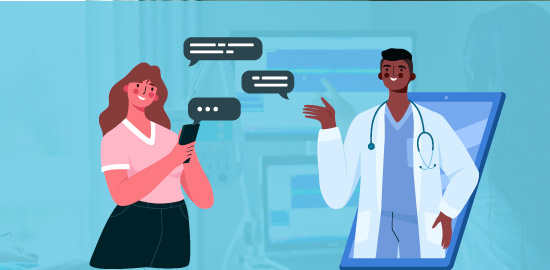Life Science Translation Services
We ensure accurate and compliant translation of medical and scientific content for global audiences.

Life science translations diverge from standard commercial translations, as they are crafted with a primary focus on precision rather than marketing objectives. Given the profound implications on human well-being, linguistic and technical accuracy are paramount in life science translations. With no margin for error, even the slightest oversight could have significant repercussions on a substantial portion of the intended audience.
So, one thing is certain: language and technical precision are paramount in life science translations. This specialized field encompasses a diverse array of documents, ranging from life science research papers and scientific manuals to patient reports, drug labels and clinical protocols. Additionally, life science translators handle testing procedures, research notes, scientific journals, and the localization of scientific software across different sectors, ensuring accurate communication in critical scientific contexts.
Life Science Translation Services We Offer

Life Science Document Translation
Translate medical & life science scientific articles, Technical documents, Research papers, Pharmaceutical registration documents, Patents translations, Scientific etc books in 200+ languages.

Life Science User Manual Translation
Filose provide precise Life Science User Manual translations crucial for global medical device usability and safety. With meticulous attention to detail, our clear and tailored translations cater to diverse audiences in the life sciences industry.

Life Science Marketing Material Translation
Elevate your global life science marketing efforts with our expert translation services, ensuring accurate and impactful translations of marketing materials. Tailored to resonate with diverse audiences, our translations enhance brand visibility and engagement in the life sciences industry.

Life Science Video Presentation Translation
Experience seamless communication across borders with our Life Science video presentation translation services, ensuring accurate and engaging translations for global audiences. Our expert team delivers precise translations that capture the essence of your message, facilitating effective knowledge dissemination in the life sciences field.
The Criticality and Challenges of Life Science Translations
Undoubtedly, life science and healthcare services are intimately linked to individual health and well-being, necessitating meticulous handling of translations across all life science documents. This requirement underscores the paramount importance of maintaining exceptional focus and attention to detail. There are several others that the translators must be aware of. Although not limited to the below, usually, life science translations would involve the following challenges.
Translating Life Science Terms
Translating scientific terms poses a formidable challenge in life science translations. Many terms and anatomical names originate from Latin or Greek and have been in use for centuries, presenting a significant barrier to translation. Despite efforts to modernize terminology, numerous terms remain untranslated, maintaining their original form across the scientific community.

This complexity can pose a significant challenge for translators in the life sciences, requiring extensive research to accurately match corresponding terms. Therefore, it’s essential for life science service providers to engage specialized translators proficient not only in the language pair but also in life science terminologies. This ensures precise conveyance of meaning and correct usage of terms, as merely substituting terms may lead to inaccuracies or loss of relevance in scientific contexts.

Translating a Variety of Life Science Documents
Translating various life science documents encompasses a diverse array of materials, each with its unique translation requirements. For example, translating life science software necessitates expertise in technical terminology, medical terminology, and language fluency to ensure flawless and natural translations, as well as accurate software localization.
Similarly, documents like patient reports and medical journals demand a different approach, requiring translators to establish clear communication lines, utilize appropriate medical terminology, and convey precise meaning to involved parties. Here, accuracy is paramount, emphasizing the need for flawless translations to uphold the integrity of scientific information.
Different Types of Life Science Translations
The diverse range of disciplines within life science adds further complexity to translations. For example, translations for cardiovascular health differ significantly from those for neuroscience. Each area requires specialized knowledge of unique medical terms and anatomical structures, underscoring the necessity for a proficient team of translators with expertise across various domains within the life sciences.

Translation proficiency in one life science area does not necessarily translate to proficiency in another. For instance, consider the acronym RAD, which has various meanings in different life science contexts, such as right axis deviation or reactive attachment disorder. A skilled translator must understand the specific context and accurately choose the appropriate full form corresponding to the branch of life science being translated.

Differences in Communication
In life science translations, the choice of language also depends on the intended audience. For instance, terminology may differ when documents are shared among researchers and clinicians compared to when they are intended for patients’ comprehension. It’s crucial to ensure that translations are accessible and contextually relevant, particularly for patients who may not be familiar with technical terms beyond common abbreviations like “BP” for blood pressure.
Why choose Filose for Life Science Translation Services

Life Science Quality Check
Filose understands quality parameters. we have experienced and professional language experts, our QC engineers are highly qualified and able to find out the smallest mistake.

Resources
Most of Filose’s linguistic resources are based in their home countries where they keep in touch with how languages are used. Our native translators and Life Science experts work to ensure the correct meaning is conveyed.

Turnaround Time
For shorter turnaround time on larger volumes, it is possible to deploy multiple Life Science translators and perform additional reviews to ensure a good quality deliverable. We offer quick, reliable and quality assured translation service.

Benefits
Data privacy is one of the major benefits of outsourcing services to us. once the translation part is completed, the output is passed through several QC stages within the shortest possible time frame.
Filose Life Science Translation | Expert Certified Life Science Translators

Filose stands as a leading provider of translation services worldwide, specializing in over 200 languages, encompassing both Indian and foreign languages such as French, Italian, Japanese, Arabic and many other languages. In the realm of life science translations, we offer our clients a dedicated team of expert translators proficient in both language pairs and the specific requirements of life science documentation. Our translators possess a keen understanding of the critical nature of life science translations and are well-versed in the technical terminology used in the life sciences sector. We translate a diverse array of life science documents, including research papers, patient reports, and clinical protocols. Additionally, our expertise extends to online translations for healthcare websites, mobile apps, and other digital platforms, ensuring accurate communication in the dynamic field of life sciences.
Our proficiency extends beyond traditional life science translations to encompass online translation services as well. This involves translating websites for life science service providers, mobile applications and website applications, along with other digital documents as needed. Over the years, we’ve successfully completed numerous projects and our commitment to continuous improvement ensures our strength in the life sciences translation market.
Life Science Insights
Life Sciences Translation Frequently Asked Questions (FAQ)
What is life science translation?
Life science translation involves the translation of scientific and medical content related to fields such as biotechnology, pharmaceuticals, healthcare, and medical devices. This includes documents such as clinical trial protocols, regulatory submissions, patient information leaflets, medical journals and product labeling.
What are the challenges of life science translation?
Life science translation presents several challenges, including complex terminology, regulatory requirements, cultural differences, and varying linguistic conventions. Translators must have a deep understanding of both the source and target languages, as well as expertise in the subject matter, to overcome these challenges effectively.
Why is human review necessary in life science translation?
Human review is essential in life science translation to ensure accuracy, precision and quality in the translated content. Human reviewers possess the expertise needed to accurately interpret complex medical terminology, understand regulatory requirements and ensure that translated content is contextually appropriate and culturally sensitive.
How can life science translation benefit global expansion?
Effective life science translation can facilitate global expansion by enabling companies to reach new markets, expand their customer base, and increase product accessibility worldwide. Translated content allows companies to communicate with diverse audiences in their native languages, fostering trust, engagement, and market penetration.
Why LSO (Linguistic Sign Off) process required in life science translation?
The Linguistic Sign Off (LSO) process is required in life science translation to ensure the accuracy, consistency, and quality of translated content. In the life science industry, even minor errors or inconsistencies in translated documents can have serious consequences, potentially leading to misinterpretation of medical information, regulatory non-compliance, or patient safety issues.


